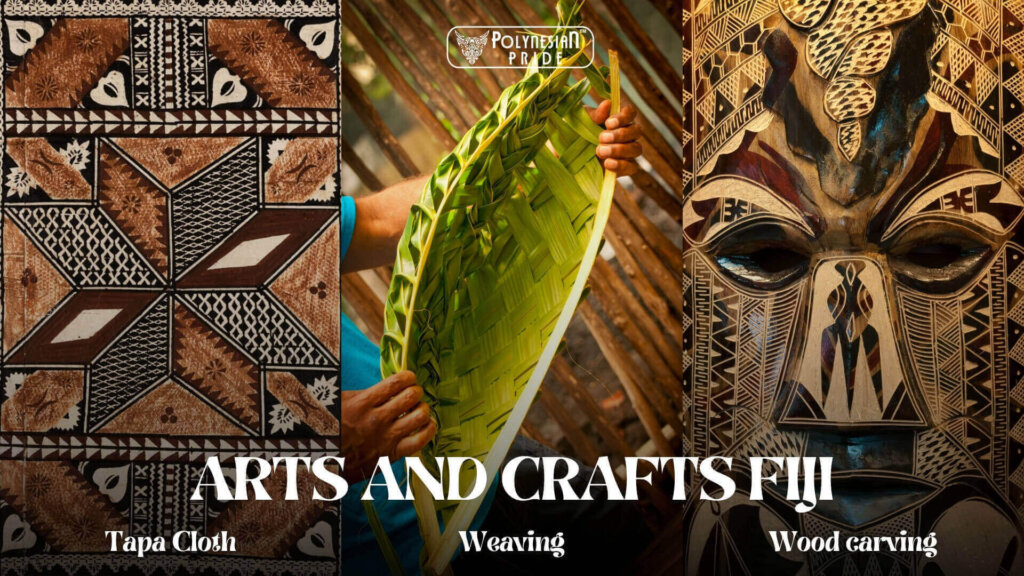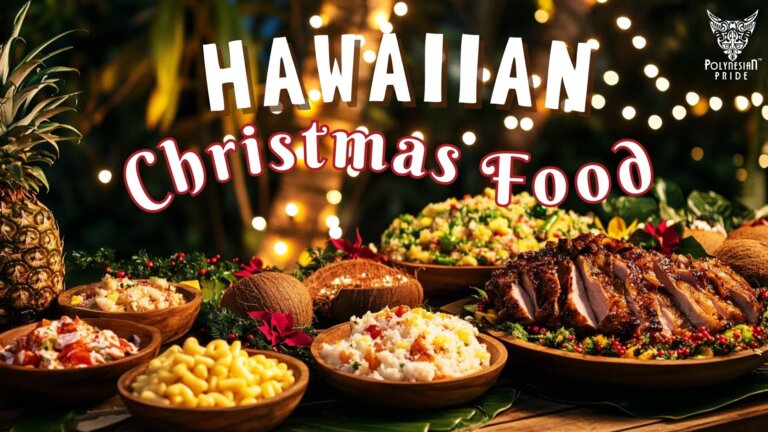Culture of Fiji: Explore Traditions, Festivals, and Heritage

Explore the captivating culture of Fiji, where a rich tapestry of cultural diversity awaits. Nestled in the South Pacific Ocean, Fiji beckons with its tropical allure and an intricate blend of traditions shaped by centuries of history. From vibrant ceremonies that echo ancient rituals to savory dishes infused with local flavors, Fiji’s culture is a testament to resilience, community, and the enduring spirit of its people. Let’s delve into this captivating cultural landscape, where each tradition tells a story of heritage and awaits your exploration.
1. Culture of Fiji: Background and Overview
Geographical Location
Fiji, a mesmerizing archipelago of over 300 islands scattered like emeralds across the turquoise canvas of the South Pacific Ocean, beckons travelers with its promise of paradise. Viti Levu and Vanua Levu, the two largest islands, boast stunning scenery – from palm-fringed beaches and coral reefs teeming with life to lush rainforests echoing with bird calls.

Historical Background
Fiji’s captivating history stretches back millennia. The earliest settlers, believed to be of Melanesian origin, arrived around 3,500 years ago, laying the foundation for the vibrant culture of Fiji. Traditions such as the ceremonial kava consumption are still practiced today.
Polynesian voyagers brought their customs, enriching Fiji’s cultural tapestry. European explorers arrived in the late 18th century, followed by missionaries and colonizers who further shaped Fiji’s development. The nation gained independence from British rule in 1970, adding another chapter to the diverse history of the culture of Fiji.
Cultural Influences
The culture of Fiji is a fascinating blend, shaped by its geographical location and historical encounters. Positioned between Melanesia and Polynesia, Fiji has absorbed influences from both regions. The arrival of Europeans, Indians, and other ethnic groups over the centuries has further enriched Fiji’s cultural landscape.
2. Core Aspects of Fijian Culture
2.1. Family and Community
The Significance of Family
In Fijian culture, family is not merely a collection of relatives; it’s the very foundation upon which society is built. Extended kinship networks, known as “veiwale”, stretch far beyond immediate family, encompassing cousins, aunts, uncles, and even distant relatives. These intricate social structures provide a robust support system, ensuring that no individual is left alone to face life’s challenges.
Fijian families are often large and multigenerational, with strong bonds of affection and loyalty uniting siblings, cousins, and grandparents. The concept of “veiwale” fosters a deep sense of belonging and responsibility, ensuring that the needs of every family member are met.

Village Life and Communal Values
Immerse yourself in the heart of Fijian culture by visiting a Fiji culture village. These vibrant communities, not just settlements, are where everyone knows each other and shares a deep connection to the land, or “Vanua”. This concept of communal ownership and responsibility instills a strong sense of unity and cooperation among villagers. Experiencing life in a Fijian culture village allows you to witness firsthand the importance of family and community in Fijian society.
Life in a Fijian village revolves around shared values such as sharing, cooperation, and respect for others. These values are evident in the communal preparation of meals, the collective participation in village activities, and the harmonious resolution of disputes through “veiwale” discussions.
The village chief, or “turaga”, plays a pivotal role in maintaining order and harmony within the community. Elders are revered for their wisdom and guidance, while younger generations are encouraged to learn from their experiences and uphold the village’s traditions.
2.2 Traditions and Customs
Ceremonies and Rituals
Fiji is a land steeped in tradition, where ceremonies and rituals hold immense cultural significance. One of the most important customs is the Sevusevu, a symbolic welcoming ritual where visitors present a gift of kava root (a mildly psychoactive plant) to the chief or village elder. This offering signifies respect and seeks permission to enter the village.

Another significant ceremony is the Vaka Turaga, a coming-of-age ceremony marking a young person’s transition into adulthood. During this ceremony, the participant may undergo symbolic acts or wear traditional attire signifying their newfound status within the community.
Arts and Crafts
The vibrant arts and crafts scene in Fiji is a testament to the country’s rich cultural heritage. Traditional crafts like weaving, wood carving, pottery, and tapa cloth making are the powerful expressions of Fijian identity, deeply intertwined with traditional Fijian clothing and ceremonial life.
Fijian weaving is renowned for its intricate geometric patterns and vibrant colors, often using natural materials like palm leaves and hibiscus bark. Tapa cloth, a unique Fijian barkcloth, is traditionally decorated with intricate designs and natural dyes. These art forms are not only a source of livelihood for artisans but also play a vital role in cultural preservation, ensuring that these traditions are passed down to future generations.

2.3 Beliefs and Spirituality
Melanesian and Polynesian Influences
The spiritual beliefs of Fiji are a captivating blend of Melanesian and Polynesian influences. Ancestral worship is a cornerstone of Fijian spirituality, with Fijians believing that the spirits of their ancestors watch over them and offer guidance. These spirits are often appeased through offerings of food and kava during ceremonies. Animism, the belief that spirits inhabit natural elements, is also prevalent. Sacred places like caves, mountains, and large trees are believed to be dwellings of powerful spirits, influencing daily life and decision-making.
The concept of ‘mana,’ or spiritual power, is another important aspect of Fijian spirituality. Certain individuals, such as chiefs or healers (known as “vakasese”), are believed to possess a higher level of mana, granting them wisdom and influence within the community.
Role of Religion
Christianity is the dominant religion in Fiji, with over half of the population identifying as Christians. Hinduism and Islam are also practiced, particularly among the Indo-Fijian community. Despite the diversity of faiths, religious harmony prevails in Fiji. Many cultural practices and beliefs have seamlessly intertwined with religious traditions. For example, church services may incorporate elements of traditional Fijian music and dance, while Christian holidays often coincide with traditional celebrations. This unique blend of religious and cultural practices reflects the adaptability and resilience of Fijian spirituality.

2.4 Cultural Festivals
Major Festivals
Fiji’s vibrant cultural calendar explodes with color and energy throughout the year. One of the highlights is the Hibiscus Festival, held annually in August in Suva. This electrifying event features a week-long celebration of Fijian culture, culminating in a much-anticipated beauty pageant that crowns the “Hibiscus Queen”. Traditional dance competitions, featuring graceful movements and intricate costumes, are another major draw of the festival.

Another crowd favorite is the Bula Festival, held in Nadi on the western side of Viti Levu. This lively festival offers a chance to immerse yourself in Fijian hospitality. Witness vibrant parades, participate in cultural workshops, or simply relax on the beach, soaking in the festive atmosphere.

Fiji’s multicultural heritage is further celebrated through festivals like Diwali, the Hindu Festival of Lights, and Eid, a Muslim festival marking the end of Ramadan. These events showcase the beautiful diversity of Fijian society and provide a glimpse into different religious traditions.

Other Notable Events
Beyond major festivals, numerous events keep Fijian culture alive. The annual Sugar Festival is a vibrant celebration of Fiji’s sugar cane industry. Witness exciting cane-crushing competitions, colorful parades, and lively cultural performances that showcase the heart and soul of Fijian agriculture.
For a thrilling display of Fijian ingenuity and athleticism, don’t miss the Bilibili Race. This unique competition features teams racing across the water on traditional bamboo rafts, testing their teamwork and skills in a high-energy spectacle.
These cultural festivals and events not only celebrate Fijian traditions but also create a welcoming atmosphere where locals and tourists come together to experience the warmth of Fijian hospitality and the captivating beauty of its culture.
2.5 Fijian Culture Food
Traditional Dishes
Fijian cuisine is a fusion of indigenous, Indian, and European influences, resulting in a unique blend of flavors and dishes. Some traditional Fijian dishes include Kokoda (fish marinated in coconut milk), Lovo (meat and vegetables cooked in an underground oven), and Roti (Indian flatbread). Seafood, tropical fruits, and root crops such as taro and cassava are staples in Fijian cuisine.

Culinary Practices
Cuisine plays a significant role in Fijian culture, with communal meals and cooking practices being integral parts of many celebrations and ceremonies. In rural villages, meals are often cooked on an open fire, using traditional methods and ingredients. These communal meals also serve as a way for family and community members to come together and bond.
3. Conclusion
What is Fiji’s culture? The culture of Fiji is a vibrant tapestry woven from the threads of its diverse influences and rich history. From the ancient traditions brought by Melanesian settlers and enriched by Polynesian voyagers to the impacts of European colonization and the arrival of Indian and other ethnic communities, Fiji’s cultural landscape is a testament to resilience and adaptability. Despite the pressures of modernization and global influences, the culture of Fiji remains robust, maintaining its unique identity through communal values, traditional arts, spiritual beliefs, and culinary practices.
To truly appreciate the culture in Fiji, immerse yourself in its traditions and way of life. Attend traditional ceremonies, visit local villages, or participate in cultural workshops. Experiencing Fijian culture firsthand will provide you with an unforgettable insight into the enduring legacy and vibrant spirit of this remarkable archipelago.
FAQs
What are the values in Fijian culture?
Common religious values like helping your neighbour and giving to the needy blend well with Fijian cultural values like humility, hospitality, and respect for leaders and the elderly. Respect for self, tradition, and protocol builds strong relationships and an even stronger community, irrespective of individual faith.
What is Fiji’s main religion?
Fiji’s major religions include Christianity, Hinduism, and Islam, with Christianity being the most predominant. Indigenous spiritual beliefs are also practiced among native Fijians.
What is Fiji’s traditional food?
Rice, sweet potatoes, taro (a tropical root vegetable), coconuts, cassava (a starchy shrub), breadfruit, and fish, have made up the majority of the Fijian diet for centuries.
What is important in Fijian culture?
Fijian indigenous society is very communal, with great importance attached to the family unit, the village, and the vanua (land). A hierarchy of chiefs presides over villages, clans, and tribes.
What is Fijian culture?
Fiji’s culture is a vibrant tapestry woven from the threads of its diverse influences and rich history. It’s a blend of indigenous traditions, Polynesian customs, European influences, and the contributions of Indian and other ethnic communities. This fusion has resulted in a unique and captivating cultural landscape that reflects Fiji’s resilience, adaptability, and enduring spirit.

I am Leilani Miller – I research focusing on Vanuatu – volcanic landscapes, blue holes, coral reefs & rainforests. I have over five years of experience researching and sharing insights on tourism and environmental activism. Explore and experience without limits through my latest article.
Contact information:
Email: [email protected]
Tel: +1 (808) 555-1528






